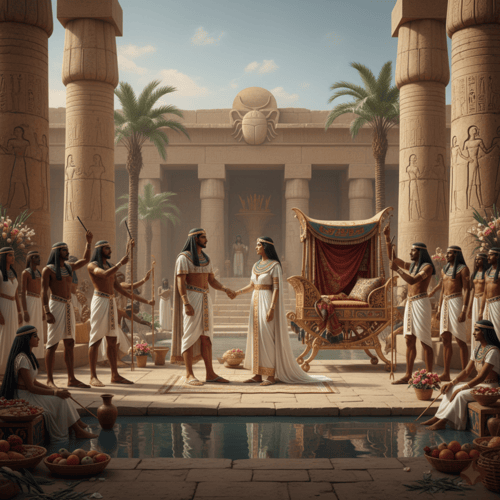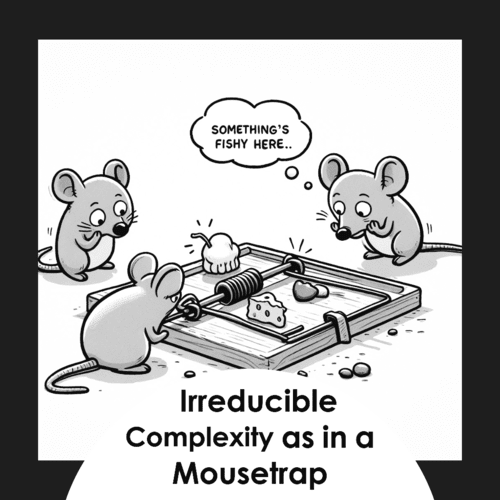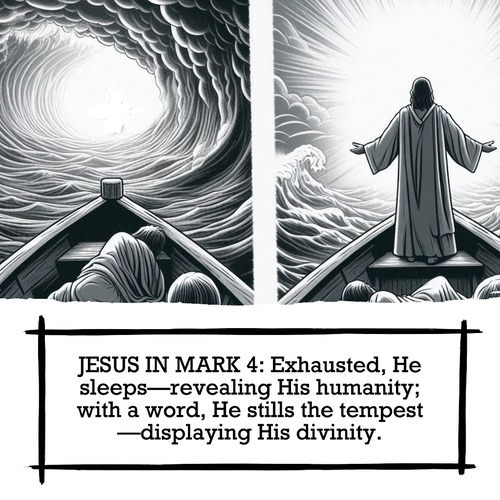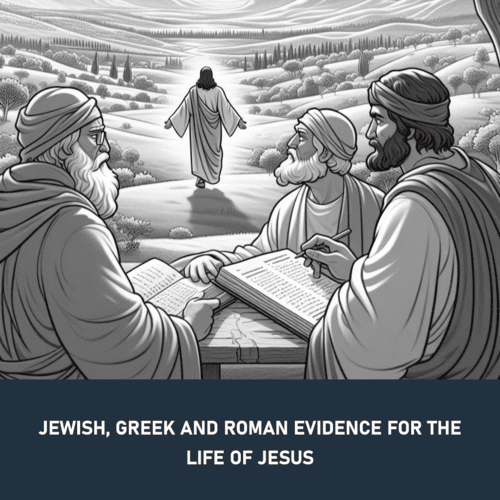Did Joseph Sin in Marrying an Egyptian?
It’s a troubling question: if God forbade His people from foreign alliances, why was Joseph’s marriage to an Egyptian not condemned? The union with Asenath, daughter of a pagan priest, appears to draw no divine rebuke. Why the difference?
The Reformed consensus appears emphatic: what God opposes isn’t really interracial marriages, so much as spiritual compromise. But how was the Joseph-Asenath alliance any different?
WHAT GOD OPPOSES: SPIRITUAL COMPROMISE
Scripture consistently warns against intermarriage with pagan nations (Deuteronomy 7:3–4; Ezra 9–10; Nehemiah 13:23–27). But these prohibitions were never about ethnicity—they were covenantal and spiritual, designed to prevent idolatry and preserve Israel’s distinct identity as God’s people (Exodus 34:16; Malachi 2:11). The distinction is critical: God forbids unions that compromise covenant loyalty, not unions that cross ethnic lines. The test is theological fidelity, not genealogical purity.
This principle explains God’s disapproval in several notable cases. Esau’s Canaanite wives (Genesis 26:34–35) grieved Isaac and Rebekah because they worshiped false gods, bringing “bitterness of spirit” to the covenant household. Samson desired a Philistine woman “because she pleases me” (Judges 14:3), revealing carnal rather than covenantal motives. Most dramatically, Solomon’s many foreign wives “turned his heart after other gods” (1 Kings 11:1–4), provoking explicit divine anger.
Yet this raises a pressing question—if God so clearly opposed these marriages, why does Scripture remain silent about Joseph’s union with Asenath, daughter of an Egyptian priest?
JOSEPH’S MARRIAGE IN CONTEXT: PROVIDENCE, NOT PASSION
Pharaoh’s Arrangement: Joseph’s union with Asenath, daughter of Potiphera priest of On, was arranged by Pharaoh himself (Genesis 41:45). Unlike the marriages condemned in Scripture, Joseph had no agency in initiating this union—it was imposed by sovereign authority within God’s larger plan. The marriage served God’s redemptive-historical purpose, situating Joseph as the divine instrument to save His covenant people (Genesis 45:5–8; 50:20).
Joseph’s position as vizier of Egypt required full cultural integration into Pharaoh’s court. Refusal of Pharaoh’s gift would have constituted political rebellion, potentially undermining the very mission for which God had positioned him. Yet integration did not mean assimilation.
Joseph’s Unwavering Faithfulness: Though married to an Egyptian, Joseph never assimilated spiritually. The evidence is compelling. He named his sons Manasseh and Ephraim with explicitly Jewish meanings, declaring “God has made me forget all my hardship” and “God has made me fruitful in the land of my affliction” (Genesis 41:51–52). These names testified to covenant faith, not Egyptian paganism.
Joseph remained faithful in confession throughout his life. On his deathbed, he professed unwavering faith in God’s covenant promises: “God will surely visit you, and bring you up out of this land to the land that he swore to Abraham, to Isaac, and to Jacob” (Genesis 50:24–25). The book of Hebrews celebrates this very moment as exemplary faith (Hebrews 11:22).
Thus, though married to an Egyptian, Joseph lived as a pilgrim and covenant-keeper in a foreign land, not as one joined to Egypt’s gods. This is the crucial distinction that separates his marriage from those Scripture condemns.
THE SILENCE THAT SPEAKS: NO DIVINE REBUKE
Scripture’s silence is theologically significant. When God disapproved of marriages, He made His displeasure known. Esau’s marriages caused parental “bitterness of spirit” (Genesis 26:35). Solomon received explicit divine anger: “The LORD was angry with Solomon because his heart had turned away” (1 Kings 11:9). The mixed marriages in Ezra-Nehemiah prompted immediate prophetic confrontation and communal repentance.
Yet regarding Joseph? Not one word of censure. Instead, the narrative celebrates his family. God elevates his half-Egyptian sons to full tribal status without qualification. In biblical narrative theology, such silence where condemnation would be expected signals divine approval, not mere toleration.
WHAT ABOUT ASENATH’S FAITH? THE SILENCE AND SYMBOLISM
Scripture is silent about Asenath’s personal faith journey, but her sons were counted as tribes of Israel (Genesis 48:5–6)—unmistakable evidence of covenant inclusion. Jacob declares with prophetic authority: “Ephraim and Manasseh shall be mine, as Reuben and Simeon are.” This isn’t honorary mention; it’s full covenantal adoption.
In Reformed typology, Asenath’s acceptance parallels that of Rahab and Ruth—Gentiles grafted into covenant grace. God’s sovereign election often transcends national boundaries (Romans 9:24–26). As John Calvin observed in his Commentary on Genesis 41:45: “Although she was of alien race, yet the Lord so ordered it that the holy race should not be contaminated; for in this marriage, Joseph observed moderation, and his heart was kept pure.”
God Himself incorporated Asenath’s sons into Israel without qualification or purification ritual. The tribal status wasn’t provisional or secondary—Ephraim and Manasseh received territorial inheritances and maintained tribal identity throughout Israel’s history (Numbers 26:28–37; Joshua 16–17).
Matthew Henry likewise notes that Joseph’s “Egyptian alliance” was no defection but “a providential advancement for the preservation of God’s church.” The Puritan consensus recognised God’s hand orchestrating this union for redemptive purposes far exceeding personal preference.
DIVINE PROVIDENCE WORKING THROUGH PAGAN STRUCTURES
Secondary Causes, Primary Purpose: Joseph’s story embodies the Reformed doctrine of providence working through secondary causes (Westminster Confession 5.2). Even the acts of pagan rulers and foreign customs fall under God’s sovereign orchestration for His covenant purposes (Romans 8:28; Ephesians 1:11). The Heidelberg Catechism (Q&A 27-28) affirms that God’s providence means “all things come to us not by chance but by his fatherly hand.”
Through this marriage, God positioned Joseph to preserve the covenant line, protect Jacob’s family during famine, and prepare the stage for the Exodus. Hence, Joseph’s marriage wasn’t rebellion, but obedience within God’s mysterious design—a providence greater than personal choice.
God’s plan isn’t derailed by cultural complexity. He sanctifies His servants amid pagan settings to accomplish redemption. Joseph’s experience demonstrates faithful covenant-keepers can serve God’s purposes even within structures that appear compromising, provided the heart remains undivided.
THE BROADER REDEMPTIVE THREAD: GRACE THAT WELCOMES THE NATIONS
Joseph’s Egyptian marriage anticipates the inclusion of the Gentiles in the covenant (Isaiah 19:25; Ephesians 2:12–14). Just as Rahab, Ruth, and Asenath were incorporated into God’s people, so in Christ “there is neither Jew nor Greek” (Galatians 3:28).
The Reformed tradition reads Joseph’s story typologically with profound implications. Joseph prefigures Christ: both are rejected by their brothers, sold for silver, exalted from humiliation, and given authority over the Gentiles. Crucially, both take a bride from among the nations—Joseph’s Egyptian wife prefigures Christ’s multi-ethnic Church drawn “from every tribe and language and people and nation” (Revelation 5:9). Joseph’s sons becoming Israelite tribes anticipates Gentiles becoming “fellow heirs, members of the same body, and partakers of the promise in Christ Jesus” (Ephesians 3:6).
Thus, Joseph’s union foreshadows the universal reach of divine grace, where covenant faith, not lineage, defines belonging. What appeared as potential compromise becomes prophetic picture—God’s redemptive plan always included the nations.
CONCLUSION: JOSEPH DID NOT ERR—HE OBEYED PROVIDENCE
Joseph’s marriage wasn’t moral compromise but obedience to God’s leading. Unlike Solomon or Samson, he didn’t turn his heart from God. His faith remained steadfast, his household became covenantal, and his marriage became a means of redemption.
The evidence is overwhelming: God arranged the marriage through Pharaoh’s decree. He preserved Joseph’s spiritual fidelity throughout, and incorporated his sons as full tribes without reservation. Scripture’s complete narrative silence screams approval, where condemnation would have appeared if warranted. In short, Joseph’s Egyptian marriage is testimony that God’s covenant purposes can sanctify even interracial unions—when the intent of heart is to honour God and obey His leading.
Where the heart remains faithful and God’s providence leads, even a marriage to Pharaoh’s court becomes a thread in redemption’s tapestry. This foreshadows the day when people from every nation will be called children of Abraham by faith—united not by blood but by the covenant promises of God.
RELATED FAQs
What about Deuteronomy 7:1-3? Doesn’t it explicitly forbid marrying Egyptians? Deuteronomy 7:1-3 specifically lists seven Canaanite nations (Hittites, Girgashites, Amorites, etc.) but notably excludes Egypt from the prohibition. While Egypt was certainly pagan, the Mosaic Law targeted the nations occupying the Promised Land who were under divine judgement for their abominations (Genesis 15:16). Reformed scholar Willem VanGemeren notes Egypt, despite its idolatry, maintained a unique relationship with Israel throughout redemptive history—serving as both place of refuge and divine judgement, never subject to the ban (herem) applied to Canaan.
- Didn’t Joseph’s brothers marry Canaanites? Why weren’t they condemned? Yes—Judah explicitly married a Canaanite woman (Genesis 38:2), and Simeon also had a Canaanite wife (Genesis 46:10). The text records these marriages without explicit condemnation, though consequences follow (Judah’s sons Er and Onan are struck down by God). Old Testament scholar Bruce Waltke argues this reflects the pre-Sinai patriarchal period’s moral ambiguity, where covenant boundaries were less defined than after the Law was given. The pattern suggests God judged outcomes and heart orientation rather than applying later Mosaic restrictions retroactively.
- How do modern Reformed theologians view Joseph’s marriage? Timothy Keller noted Joseph’s marriage demonstrates how God’s providence can sanctify culturally complex situations when believers maintain spiritual integrity. John Piper emphasises the key distinction is between marriages that lead away from God (Solomon) versus marriages within God’s providential plan where faith remains intact (Joseph). Both scholars stress the New Testament abolishes ethnic restrictions entirely (Galatians 3:28), making Joseph’s experience paradigmatic for the gospel age rather than exceptional.
If Asenath’s father was a pagan priest, wouldn’t that make the marriage especially problematic? Reformed commentator Gordon Wenham observes Joseph had no choice in this politically-arranged marriage, unlike Solomon’s voluntary accumulation of pagan wives. Pharaoh gave Asenath to Joseph as part of his installation as vizier—refusal would have been political rebellion. Calvin suggests God’s providence overruled what might otherwise be problematic: “God so tempered this connection that Joseph’s piety remained uncontaminated, and his children were brought up in the true faith.” The fruit (faithful sons incorporated as tribes) validates the root.
- Does Joseph’s marriage set a precedent for Christians marrying non-believers today? No—this conflates Old Covenant ethnic categories with New Covenant spiritual categories. Joseph married someone outside ethnic Israel but not necessarily outside covenant faith (Asenath’s conversion is implied by her sons’ inclusion). Reformed theologian Michael Horton clarifies that 2 Corinthians 6:14 (“Do not be unequally yoked with unbelievers”) establishes the NT standard: the prohibition concerns spiritual allegiance, not ethnicity. Joseph’s marriage involved no compromise of faith; a Christian marrying an unbeliever does.
- Why did Jacob adopt only Joseph’s sons and not the sons of his other children? This unique adoption elevated Joseph to a double portion—the traditional inheritance of the firstborn—effectively transferring Reuben’s forfeited birthright to Joseph (1 Chronicles 5:1-2). Old Testament scholar Victor Hamilton notes this wasn’t about legitimising mixed-ethnicity children but about honouring Joseph’s faithfulness and God-given status. The adoption also fulfilled Jacob’s earlier promise that Joseph would receive extra territory (Genesis 48:22), practically doubling Joseph’s tribal inheritance through Ephraim and Manasseh.
Are there other biblical examples of Egyptians being incorporated into Israel positively? Yes—the Exodus narrative includes a “mixed multitude” of Egyptians who left with Israel (Exodus 12:38), and the Law explicitly commanded, “You shall not abhor an Egyptian, because you were a sojourner in his land” (Deuteronomy 23:7). Moses himself married a Cushite (likely Egyptian) woman whom God defended (Numbers 12:1-9). Reformed scholar Iain Duguid argues these examples demonstrate that Egypt, unlike Canaan, was never categorically excluded from covenant grace—anticipating Isaiah’s prophecy that “Egypt my people” would one day worship Yahweh (Isaiah 19:25).
OUR RELATED POSTS
Editor's Pick

The One Man Mystery in Acts 17:26: Is It Adam Or Noah?
When the Apostle Paul stood before the philosophers at Mars Hill, he delivered an insightful statement about human unity: “And [...]

Megiddo Or Jerusalem: Where Did King Josiah Die?
Recent archaeological discoveries at Tel Megiddo continue to reveal evidence of Egyptian military presence during the late 7th century BC, [...]

Losing Your Life Vs Wasting It: How Are the Two Different?
AND WHY DID JESUS PRAISE THE FORMER? Jesus spoke one of the most perplexing statements in Scripture: “For whoever wants [...]

Can Christians Be Demon Possessed? What the Bible Teaches
Perhaps you’ve witnessed disturbing behavior in a professing Christian, or you’ve struggled with persistent sin and wondered if something darker [...]

Sacred Fury: What Christ’s Temple Cleansing Truly Means
Mark 11 records the crack of a handmade whip that echoed through the temple corridors. Tables crashed to the ground, [...]

Did Jesus Cleanse the Temple Twice?
OR DID JOHN DISAGREE WITH THE SYNOPTICS ON TIMING? One of sceptics’ favourite "gotcha" questions targets what they see as [...]

Self-Authentication: Why Scripture Doesn’t Need External Validation
"How can the Bible prove itself? Isn't that circular reasoning?" This objection echoes through university classrooms, coffee shop discussions, and [...]

Do Christians Need Holy Shrines? Why the Reformed Answer Is No
Walk into a medieval cathedral and you'll encounter ornate shrines, gilded reliquaries, and designated "holy places" where pilgrims gather to [...]

I Want To Believe, But Can’t: What Do I Do?
"I want to believe in God. I really do. But I just can't seem to make it happen. I've tried [...]

BC 1446 or 1250: When Did the Exodus Really Happen?
WHY REFORMED SCHOLARS SUPPORT THE EARLY DATE Many a critic makes the claim: “Archaeology has disproven the biblical account [...]
SUPPORT US:
Feel the Holy Spirit's gentle nudge to partner with us?
Donate Online:
Account Name: TRUTHS TO DIE FOR FOUNDATION
Account Number: 10243565459
Bank IFSC: IDFB0043391
Bank Name: IDFC FIRST BANK






